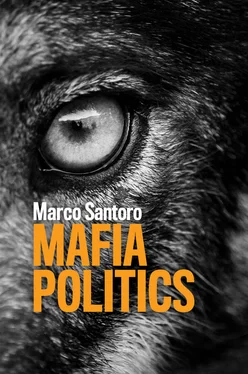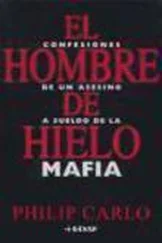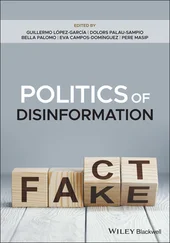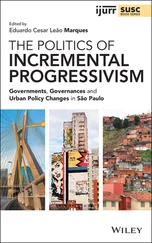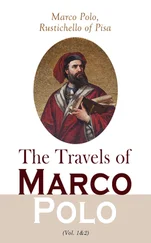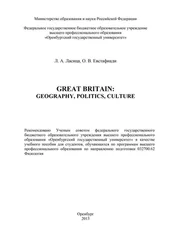1 ...7 8 9 11 12 13 ...23 Never named, the mafia’s phenomenology was clearly in the author’s mind and local knowledge, having been born in Palermo and politically engaged as a deputy representative of a mandate near Palermo, and well known in mafia chronicles. We can easily infer from this excerpt that Mosca believed the ‘social phenomenon’ of the mafia was as ‘dangerous to the society in which it occurs’ as it was ‘very interesting to the student of the political sciences’. Indeed, it was a real, true government – ‘clandestine’ but often ‘better obeyed’ and even ‘better understood’: this is how the political sociologist Mosca conceptualized the mafia. However, these intellectual concerns and sociological insights never developed into a comprehensive research programme in his writings (see, e.g., Mosca 1980 [1900]; 1933). Indeed, to find the first clear assertion about the political nature of a mafia-like social phenomenon (called by its name, this time), you have to look not to a strictly academic work, but to an article written and published in the Political Science Quarterly (official journal of the the Academy of Political Science founded in 1880) by the Neapolitan anarchist lawyer Francesco Saverio Merlino, who, for political motives, had emigrated to the US in 1891. After having presented the character of ‘the Camorrist’, a figure he admits he had ‘frequent opportunities, professional and other, to become acquainted with’, Merlino continues, asking ‘Who, then, was the Camorrist? And who gave him the authority for his acts?’ What follows is enlightening:
The answer is that he was a member of a secret association, and that the power he wielded was conferred by nobody, but was merely assumed. Yet he was not necessarily a criminal. He might, strictly speaking, commit no action for which he would be amenable to punishment; and whatever illegality there was in the fact itself of the existence of the Camorra, was practically obviated by custom and by the acquiescence of the government. The Camorra was, indeed, almost a branch of the government. Yet the government at times persecuted it, and ultimately has nearly destroyed it. At the height of its glory, the Camorra acted quite independently of the government, and rather as its rival. The society then was, in fact, a lesser government established on the margin of the greater. (1894, 466–7)
To find something along these lines with respect to the Sicilian mafia, you probably have to go to a now-forgotten semi-historical essay by the American writer Francis Marion Crawford, who, in his two-volume book The Rulers of the South. Sicily, Calabria, Malta , offers this enlightening, if pessimistic, assessment:
[Mafia] is a complete and highly efficient form of self-government , which exists, and will continue to exist, in defiance of the constitutional monarchy under which it is supposed to live. An ancient tyrant would have destroyed it by the brutal process of massacring half the population and transplanting the rest to the mainland, but no civilized method of producing the same result seems to have occurred to statesmen. The Bourbons employed the Mafia to keep order, the present government tolerates it because it cannot be crushed; when the Mafia joined Garibaldi, the Bourbons fell, and it remains to be seen what will happen in the south when the Mafia turns against the monarchy it has called in. It is to be hoped that such a catastrophe is far removed from present possibility, and it is at least a somewhat reassuring fact that the Mafia is the very reverse of anarchic, or even socialistic; it is, indeed, one of the most highly conservative systems in the world. (1901, ii , 373; emphasis added)
Interestingly, Crawford set forth this ‘political’ definition of the mafia as a counterpart to the reading of the phenomenon advanced by Antonino Cutrera in his La mafia e i mafiosi (1900), a study in criminal sociology considered a landmark text in mafia studies to this day (see Chapter 2of that book). Cutrera was a policeman, however, and his point of view was necessarily that of the (Italian, national, constitutional and monarchical) state he was serving. From this point of view , the mafia could never be a ‘complete and highly efficient form of self-government’, because it could only be crime, albeit a particularly complex and puzzling form of crime. In a sense, I would suggest Crawford’s outsider perspective – grounded as it was on his personal experience as an American writer living in southern Italy after a few years spent as a young man in colonial India studying Sanskrit and editing a journal on local (i.e. Indian) affairs – anticipates the perspective this book tries to develop in a more radical and consistent form, that is, a non-statist, non-Eurocentric, non-nationalist view of mafia as a different ruling class and form of government. Crawford, of course, was not alien to Eurocentric prejudice, and inevitably perceived the south of Italy – as he had colonial India – with Anglo-Saxon eyes (incidentally, there is a wide British literature on Indian criminality, which presents many analogies with Italian commentaries on the Sicilian mafia of the same period: for two enlightening contemporary studies, see the now classic Guha 1999 [1983], and Mayaram 2003). But his decentred vision as an observer with no vested interests in his object of study had potentialities worthy of further development. The scholars he makes reference to – all Euro-American social scientists, indeed, with the important exception of Mosca, whose situated knowledge of Sicilian social life had to come to terms with his rooted national and liberal attitudes, an issue surely less urgent for the anarchist Merlino – are certainly helpful in this endeavour. Think of Weber’s description of mafias (and camorras) as financial channels for political groups (it is not clear which groups he had in mind, however), of Tilly’s astute discussion of the analogy between the early state and organized crime, and more recently of Collins’s reading of mafias as patrimonial alliances that survived the state’s penetration of the modern world, and indeed contributed to its failure as a monopolistic agency.
This work builds on all these previous scholarly contributions which have shed light on the political side of the mafia. None of these scholars, however, has systematically tried to develop a comprehensive analysis of the mafia as a political institution or form, modelling it as such and analytically contrasting it to other models seemingly more convincing and acceptable, such as those typically developed in the fields of criminology and economics, or even economic sociology – which in fact are still the dominant perspectives in the literature (e.g., Cressey 1969; Arlacchi 1983a; Reuter 1983; Schneider and Schneider 1976; Catanzaro 1992 [1988]; Gambetta 1993, 2009; Sciarrone 2009 [1998]; Paoli 2003; Varese 2001, 2010). This is what this book aims to do, furthering the knowledge we have of the political dimension of the mafia , while embedding it in a critical theory of the political conditions of knowledge production in the social sciences. This makes the book a useful critical review of current scholarship, too. It is not a textbook, but rather a comprehensive critical guide to the available literature that advances a fresh interpretation of old and new evidence (for a first step in this direction, see Santoro 2007, 2011).
In this endeavour, political anthropology can offer powerful tools – such as Elman Service’s (1962) bands/tribes/chiefdoms/states taxonomy and its developments, or Abner Cohen’s (1981) dramaturgical model of elite politics in Africa (see also Carneiro 1981; Claessen and Skalnik 1979, 1981; Runciman 1982) – and some use will be made of them. The category of the chiefdom looks especially enlightening for classifying and making sense of mafia political structures. Equally promising for a re-reading of the available evidence is the analysis of political strategies developed by Frederick Bailey (2001 [1969]) after he watched the famous televised US congressional hearings of Joe Valachi on the criminal organization of Cosa Nostra. This analysis shows how a large part of the strategies elaborated and employed by mafiosi – which exhibit surprising similarities to those used by the Swat Pathans in Pakistan (Barth 1969) – already make sense in the context of political competition and leadership selection, and that a purely economic reading (as economic strategies of businessmen) does not add much to their understanding. But to capture mafia political architecture as it exists and works in institutional environments that also include the state, we need models permitting us to relativize, historicize and criticize the state’s claims as well as its imagery. Anthropological models are, unfortunately, too naive with respect to the history of political institutions and accept an idea of the state that is too general and transhistorical for our interests (see Spruyt 1994, 195n2). We need more specific, and historically determinate, conceptual instruments. This is what Tilly’s (1985) reading of early war-making states as organized crime, or Scott’s (1998) deconstruction of the liberal state’s imagination and cognitive claims, can offer us. Carl Schmitt’s (1966 [1932]) theory of the political – and work on political conflict and political friendship grounded on it (e.g., Kelly 2003; Mouffe 2005; Slomp 2007) – could also offer important ideas and suggestions even for an empirically based social theory like that pursued in this book. Through these studies, it is possible to put in brackets the modern, territorial, sovereign, rational, European state’s claims of objectivity, universality and equity, and look at the political game as it is practised in real life, even from within the historically specific form of the Western state, and against its supposed universality, equity and rationality.
Читать дальше
